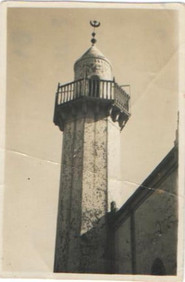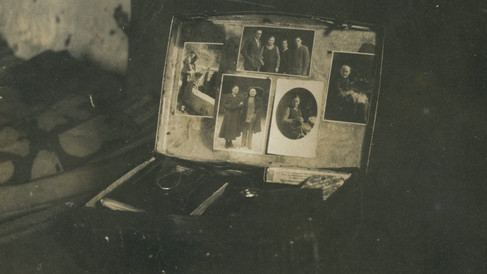
Tell us about yourself. How did you become an artist?
I decided to make documentaries when I came across stories that needed to be told and shared. Writer Kaha Mohamed Aden inspired me. Her oral tale “The Fourth Road” presents the history of Somalia, yet it is so relevant to understand contemporary Italy. I could have never done this documentary without co-directors and producers Graziano Chiscuzzu and Ermanno Guida. Being a filmmaker means to belong to a narrative community.

What was your first job in the art field?
The Fourth Road was our first film. In this film Kaha Mohamed Aden, an Italian writer of Somali origin, narrates her memories of Mogadishu, her hometown, and reconstructs its story in Pavia, where she currently lives. The Fourth Road: Mogadishu, Italy aims to present the story of a ‘new citizen’ in a country which appears to be increasingly xenophobic and intolerant.
What makes you want to tell stories? In other words, what are the themes/issues you want to incorporate into your work?
I have made four films with African Italian women writers and public intellectuals whose work I deeply admire: Kaha Mohamed Aden, Ribka Sibhatu, Geneviève Makaping, and Ubah Cristina Ali Farah. They talk about the legacy of colonialism and the presence of racism in contemporary Italy. These important themes have been often overlooked or misrepresented in mainstream media and public discourse in Italy.
Please tell us about your vision and your method of approaching a new project?
Every project has a different story. Unlike The Fourth Road, Aulò and Maka, Beyond the Frame is not a biographical movie, but an autoethnographic essay film. I wasn’t looking for a new story to tell when I found a box of colonial photographs. This discovery haunted me, I started reading books about colonial photography and talk to people from my village whose relatives went to invade Eastern Africa in the 1930s. I read books about the history of my city, Brescia, tracing back the origins of streets and places whose names celebrate colonialism. Sharing ideas with Matteo Sandrini on a regular basis was key in giving a visual shape to my reflections. And these thoughts were also shaped by the dialogue with Ubah Cristina Ali Farah. A film is always a collective endeavor.
Who are your filmmaking influencers? What are the films that were influential for you?
Chris Marker’s films, in particular La jetée (1962) and Les statues meurent aussi (1953) inspired the making of Beyond the Frame. Indeed, these films both talk about the persistence of the past in the present using a voice-over. I was also inspired by Eléonore Weber’s reflections about the elevated vision in Il n’y aura plus de nuit (2020). I wish I watched Loredana Bianconi’s Oltremare (2017) and Sabrina Varani’s Pagine Nascoste (2017) before writing and shooting Beyond the Frame. I really admired these two films, their thoughtful use of archival sources and their insightful investigation of the Italian colonial legacy – I would have loved to create a dialogue with them.
How do you think the industry is changing? How has COVID affected independent filmmaking/creation?
Audiences haven’t come back to movie theaters in the same numbers after COVID-19. People would much rather stream the film at home than visit a cinema. The popularity of streaming services such as Netflix and Amazon Prime has damaged the film industry irrevocably.
However, I don’t think that COVID have negatively affected the production of films. I love some films made during the pandemic lockdown, such as Alice Rohrwacher’s Four Roads (2020) and Elia Moutamid’s Kufid (2021). Beyond the Frame is also a film that was made thanks to the pandemic lockdowns. I was stuck in my village because of the measures limiting “inessential” travel. Rather than constraining my creativity, these restrictions invited me to discover the hidden colonial stories of Borgosatollo.
Do you think films/stories can bring about a change in the world?
Absolutely. I agree with this quote from Christopher Nolan’s Inception: “once an idea has taken hold of the brain, it’s almost impossible to eradicate.”
Please tell us about your upcoming projects.
Beyond the frame explores the relationship between visuality and racism. This theme is also at the center of a new film that I have written: Maka (2023; directed by Elia Moutamid). Maka presents Geneviève Makaping’s life in Italy and perilous migration journey. By sharing Makaping’s experience as the first Black news editor in Italy, Makaping speaks out against the media representation of immigrants. Maka focuses on questions of national belonging, and it reflects on how the perception of migration and race has changed since Makaping first came to Italy in the 1990s.



















Comments